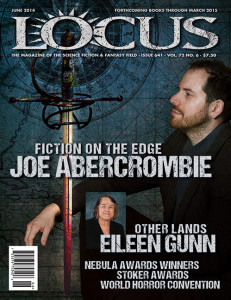One of the most common pieces of writing advice around is “show, don’t tell”, yet it’s hard to explain the concept sometimes. It’s one of those thinks you know when you see.
Writers, especially beginning writers struggle, struggle with the concept. It’s all very well to give examples like:
Don’t say the man was old and fat, show him getting up out of his chair with difficulty, his bones aching, his back bent, using his walking stick to push himself up.
It sort of works, but it sort of doesn’t too. If you try that too often without really knowing what you’re doing you end up with description soup, your story lost under the weight of your attempt to ‘show’.
You need concrete things you can do to fix your story.
Our first drafts are full of telling. Here are two techniques we use to change some of this telling to showing in the second draft.
Don’t have your characters ‘think’
Look for places in your story where your character ‘thinks’ and replace them with what he thinks about.
Chuck Palahniuk says it a lot better than us in his essay about this on Lit Reactor, Nuts and Bolts: “Thought” Verbs. He explains that if you get rid of the thought verbs: thinks, knows, understands, realizes, believes, wants, remembers, imagines, desire your writing will be much stronger. He shows some good examples too.
Try to make the story active
It’s easier to pick where a story is passive than where a story is showing rather than telling. Not only that, there are grammar rules you can apply to pick where a story is passive and change it around.
Minion Fogarty, Grammar Girl, gives a good example in Active Voice Versus Passive Voice. I’ll quote her verbatim here.
In an active voice the subject is doing the action. For example
Steve loves Amy.
Steve is the subject, loves is the action.
In a passive voice, the target of the action gets promoted to the subject position.
Amy is loved by Steve.
Another way to look for passive prose is to look for words like has, was, and were.
Let’s try a really quick example of a first draft, written passively.
There was banging on the door. It was so hard the door shuddered on its hinges. Alistair wondered if he should run or face Bo’s anger. He opened the door. Standing in the doorway was a ghost. The ghost booed at him.
Okay, so we’re not looking at award winning writing here. It’s bad, and we know it, but bear with me. It’s got all the passivity we want. ‘There was’ banging on the door. ‘It was’ so hard … and so on.
Let’s make it more active.
Someone banged on the door, so hard the door jumped in its frame.
Should he run? No. Best to face Bo now.
Alistair opened the door. A ghost stood in the doorway.
“Boo,” said the ghost.
Notice another thing. Passive text is a monologue. This happened, then that happened, then something else happened. It’s bland. As you start changing the passive text to active, you realise just how bland it is. Now that you’ve made it more active, it’s easier to see places to tweak, which helps with the show/tell.
Someone banged on the door. Hard and loud.
Should he run? No. Best to face Bo now, in the safety of his own home.
Alistair opened the door.
One of the ghosts from the waterfront stood there. The big bruiser with the red hair and the shoulders twice as wide as Alistair’s and the axe in his head. The one who’d been half-transparent the other night. He didn’t look transparent now.
He didn’t sound it either, if that had been him banging.
“Boo,” said the ghost.
The story is starting to sound different to the bland telling we started out with, and as an added bonus, we’ve doubled our word count too.
